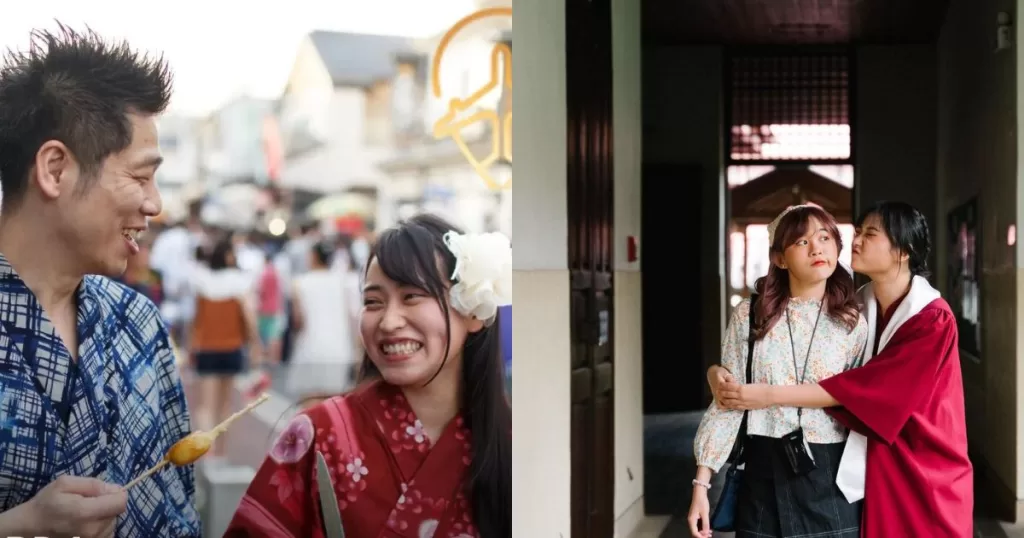Why Japanese People Rarely Hug in Public
Japan is a fascinating country with a unique culture that often surprises foreigners. One aspect that stands out is the lack of physical affection in public, particularly hugging. A recent forum thread sparked a lively discussion on this topic, with users sharing their experiences and insights.
User “Jo” shared their observation, stating, “I heard it’s rather rare in Japan to show affection between couples in public. So I wonder what is accepted over there, like holding hands, kissing, hugging each other when we are in public or if we should keep that private?”

The Unspoken Rules of PDA in Japan
According to the Japan Times, holding hands is generally acceptable for couples in public, but kissing and hugging are often kept private. This cultural norm is deeply ingrained in Japanese society, and it’s not uncommon for people to feel uncomfortable when witnessing overt displays of affection.
As user “Uji” pointed out, “Holding hands is no problem, but kissing and hugging should be kept private.” Another user, “Diggy,” added, “But no one will stare at you if you give your fiance a hug or a short kiss! This might not be common but it is certainly not forbidden either.”
The Generational Shift in Affection
However, it’s worth noting that attitudes towards public displays of affection are gradually changing, particularly among younger generations.
User “RotaryRevolution” observed, “I see the 18-20 crowd doing skinship, something that wasn’t common for the kids who are now 30 something. It’s a generational thing.”
This shift is evident in cities like Osaka, where user “Cenobite” shared, “It’s becoming more common with young people, especially in Osaka (where I live).”
The Cultural Roots of Emotional Restraint
So, why are Japanese people generally less physically affectionate in public compared to Westerners?
The answer lies in a complex web of cultural factors, including the influence of Confucianism, which emphasizes respect for ceremony and social harmony.
As user “nath” explained, “I will chalk it up to Confucian BS about respecting ceremony. Interacting with friends and family is more important than ceremony or what other people think. That much should be obvious.”
The Impact on Child-Rearing
This cultural difference also extends to parenting styles. In a blog post titled “Cross-Cultural Parenting in Japan: Differences in Affection,” Sherilyn Siy shared her observations as a foreign mother raising children in Japan.
Siy noted, “In all the times I have gone to parks, play groups, and children’s play centers here in Japan, I have yet to see a Japanese parent kiss and hug their kids. If you understood Japanese, you would probably never hear a Japanese parent say ‘I love you.'”
However, she also acknowledged that Japanese parents express their love through actions rather than words, such as providing for their children’s needs and ensuring they eat well.
The Question of Emotional Fulfillment
Given the cultural differences in expressing affection, some foreigners may wonder if Japanese people are emotionally fulfilled in their relationships.
One user argued, “its scientifically proven that skinship especially on your children (hugging/kissing) helps them develop into more affectionate adults. no matter what cultural bs excuses you come up with. giving affection to your family (not just words and a bow) will breed much more mentally healthy adults in the long term.”
However, others cautioned against imposing Western standards on Japanese culture. Another countered, “The only BS here is thinking that one culture is automatically superior. … Being more affectionate doesn’t mean more mentally healthy. Someone who tries to hug people who CLEARLY do not want to be hugged is immature, needy, insensitive and anti-social. Those are NOT the traits of a mentally healthy person.”
Navigating Cultural Differences as a Foreigner
For foreigners, it’s essential to be aware of these cultural differences and to approach them with an open mind. While it may be tempting to impose your own cultural norms, it’s crucial to respect and adapt to local customs.
As an user wisely advised, “There is no ‘why’ to social customs. They just are. In any case, I see a lot more hugging than I used to in Japan. Yet I appreciate the distinction most Japanese make between public and private, something many Americans could learn more about.”
User Comments:
- “I’ve been living in Japan for 5 years now, and I’ve definitely noticed the lack of physical affection in public. At first, it was a bit of a culture shock, but I’ve come to appreciate the sense of respect and privacy that Japanese people maintain.”
- “As an American married to a Japanese woman, I can attest to the cultural differences in expressing affection. It took some time for us to find a balance that worked for both of us, but open communication and mutual understanding have been key.”
- “I think it’s important for foreigners to remember that just because Japanese people don’t hug or kiss in public doesn’t mean they’re emotionally cold. They simply have different ways of expressing their love and care for others.”
- “I’ve noticed that younger Japanese people are becoming more open to physical affection in public, especially in larger cities. It’s a slow shift, but it’s happening. As a foreigner, I try to be respectful of local customs while still staying true to my own values.”
- “Moving to Japan has taught me a lot about cultural sensitivity and adaptability. While I miss the ease of hugging friends and family back home, I’ve learned to appreciate the subtle ways Japanese people show their affection, like thoughtful gestures and quality time spent together.”